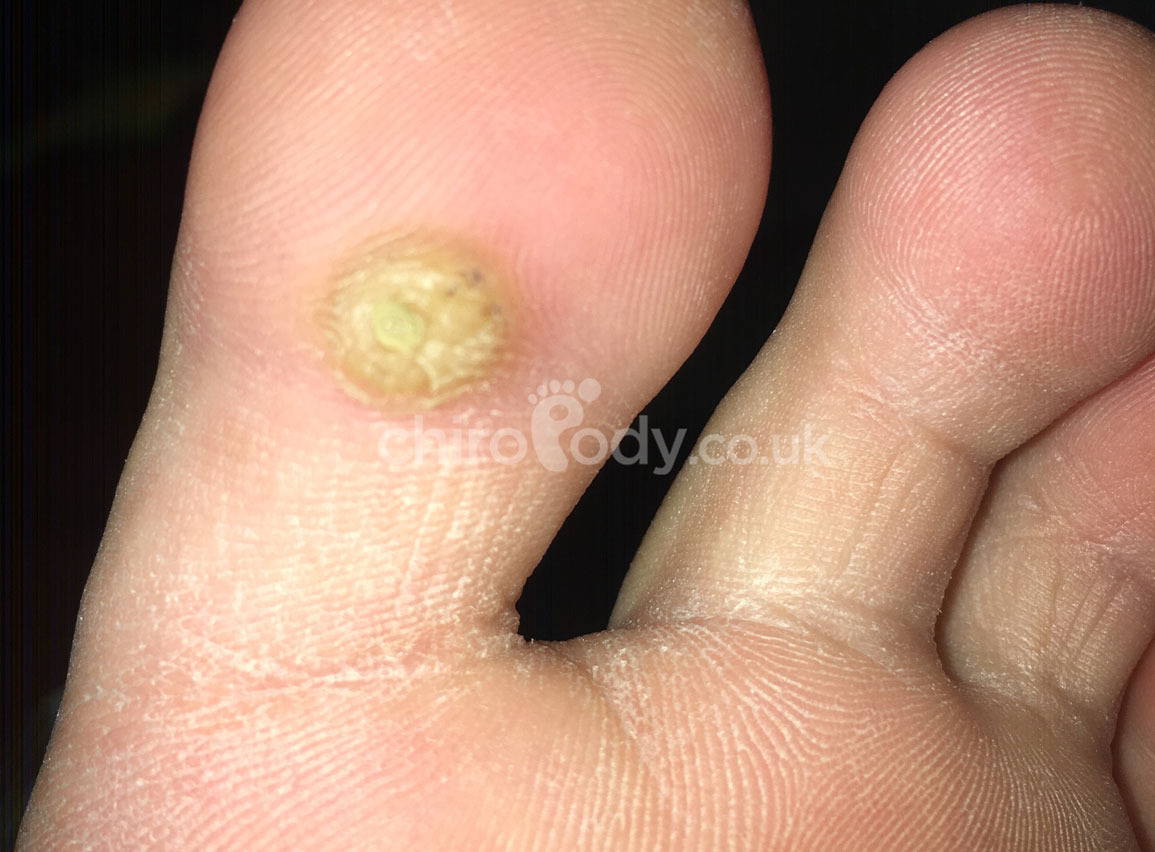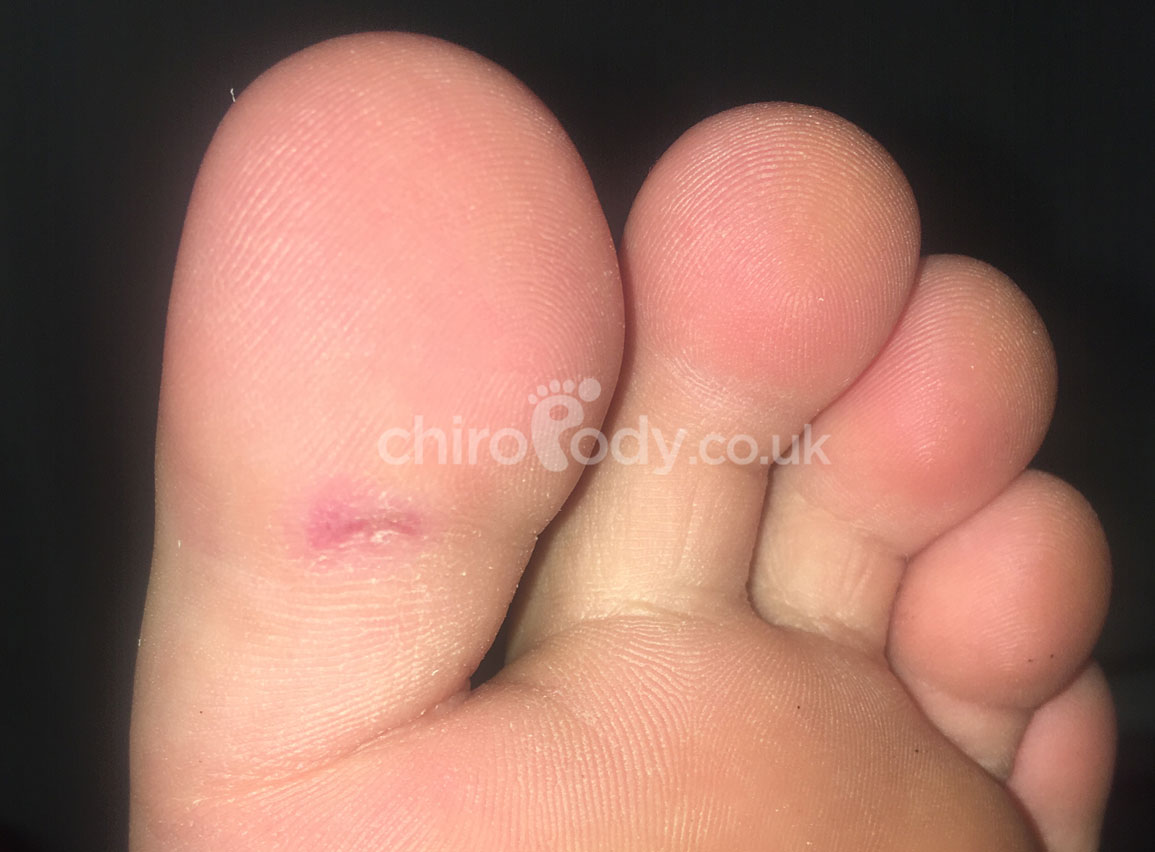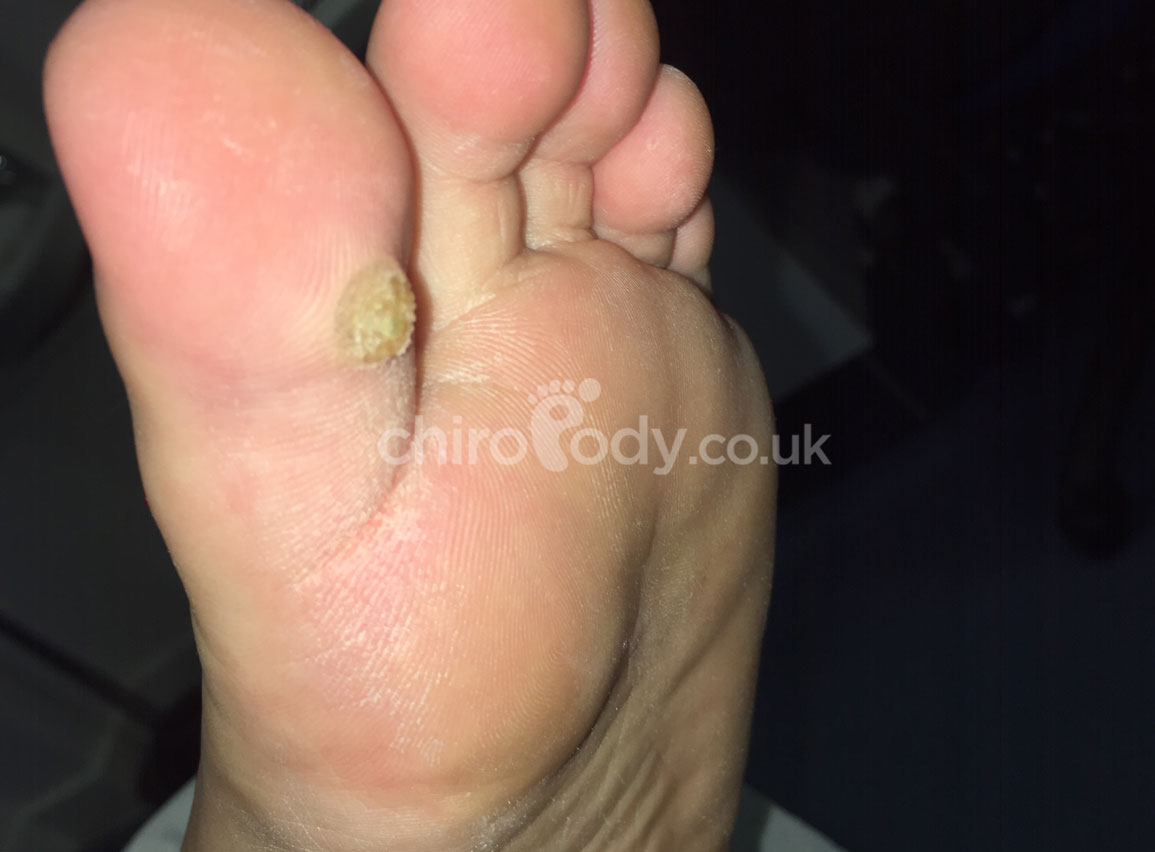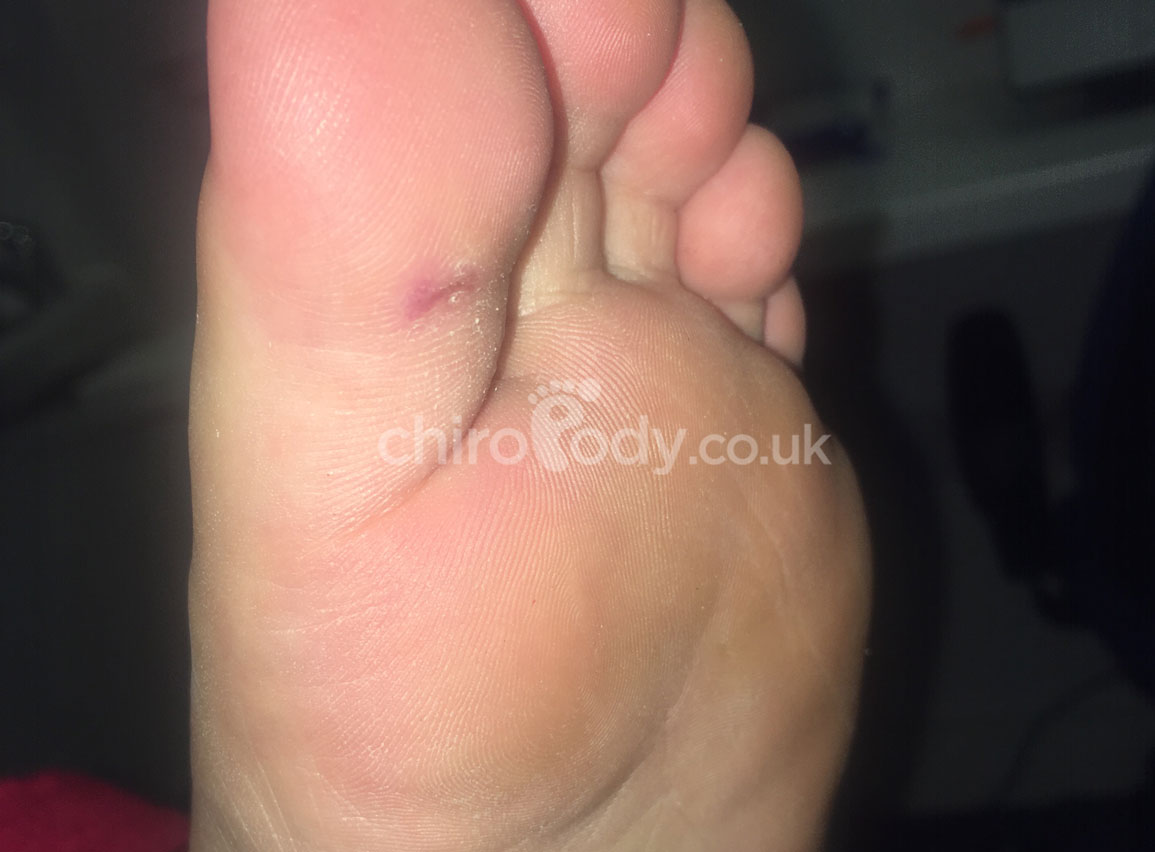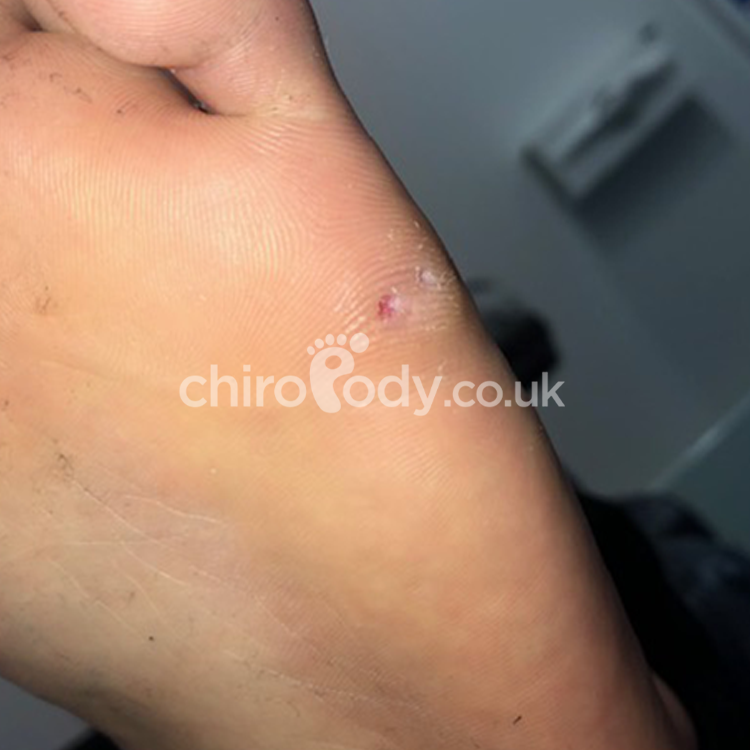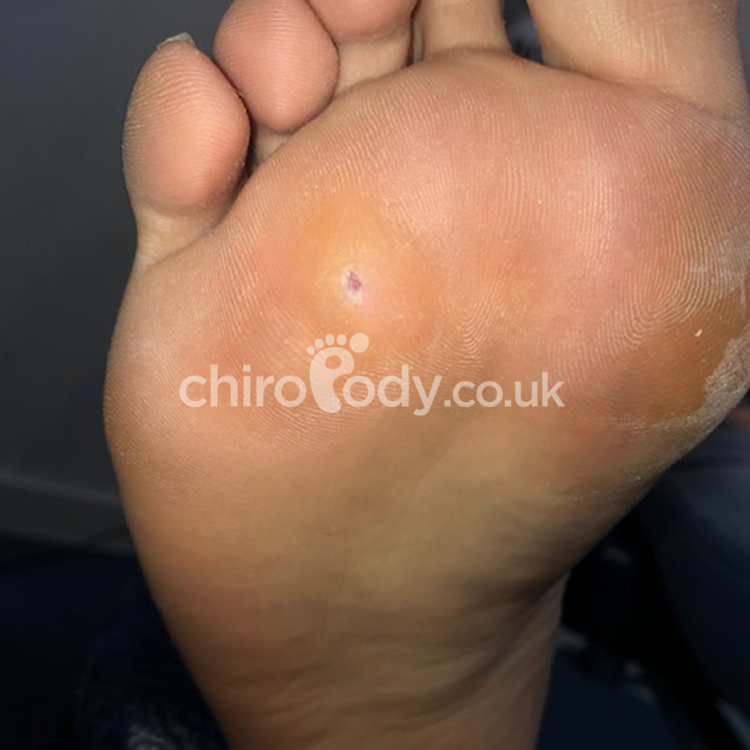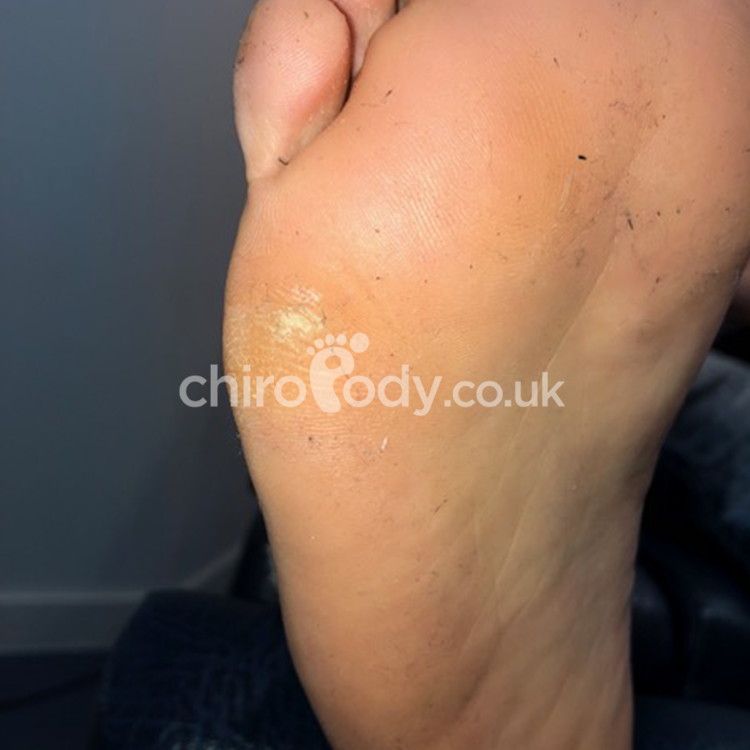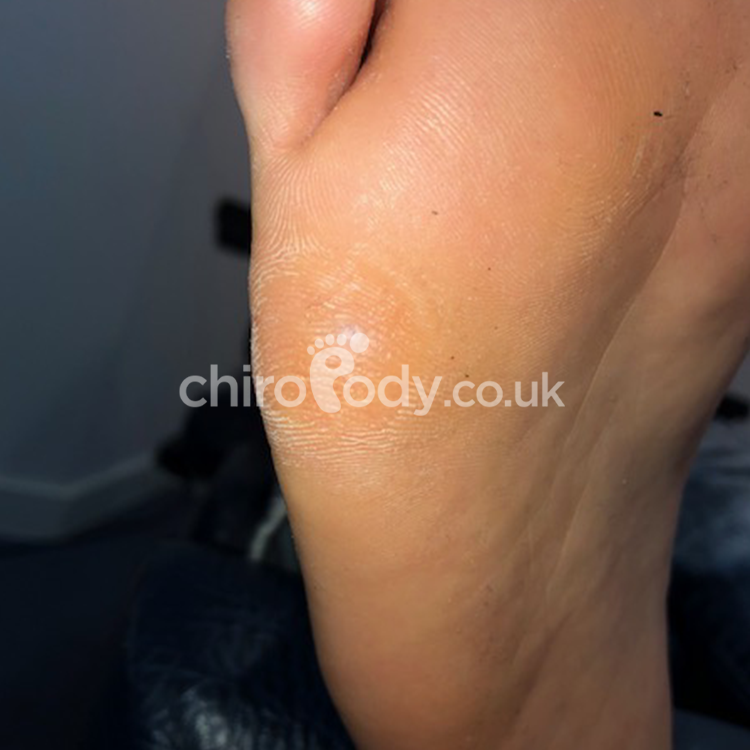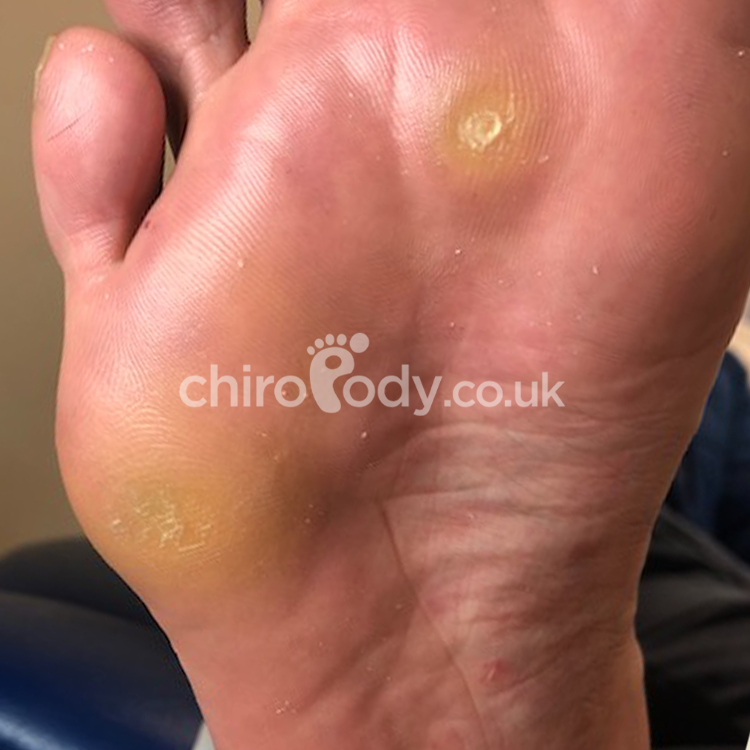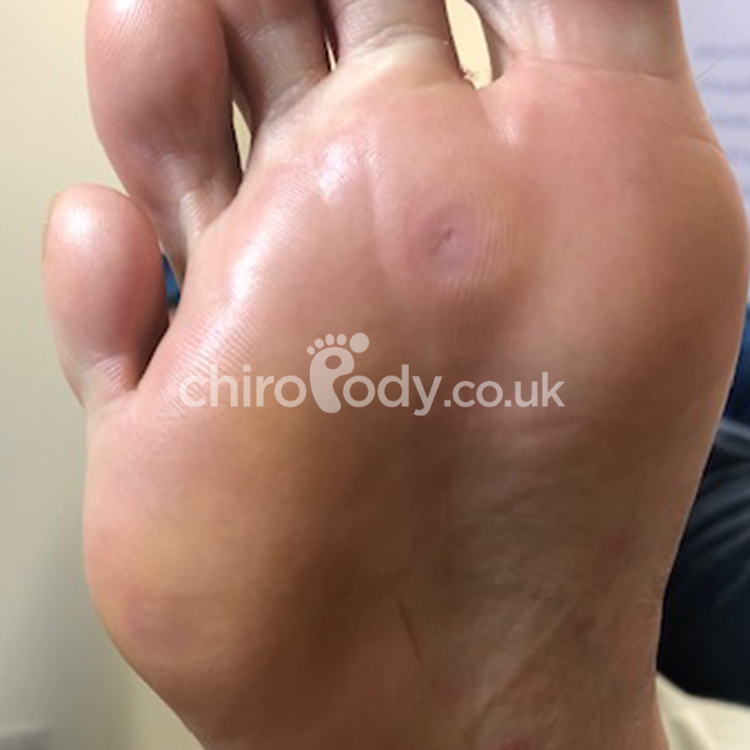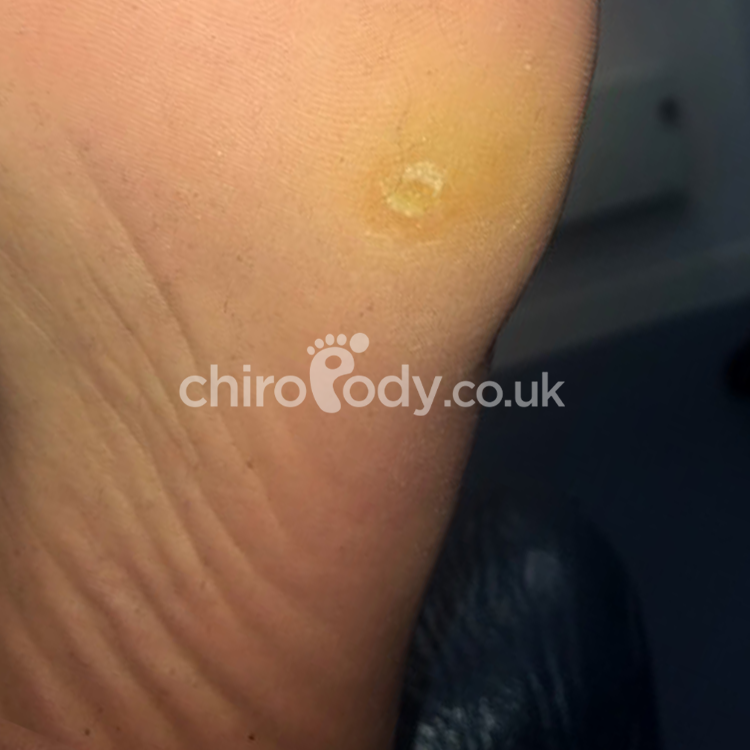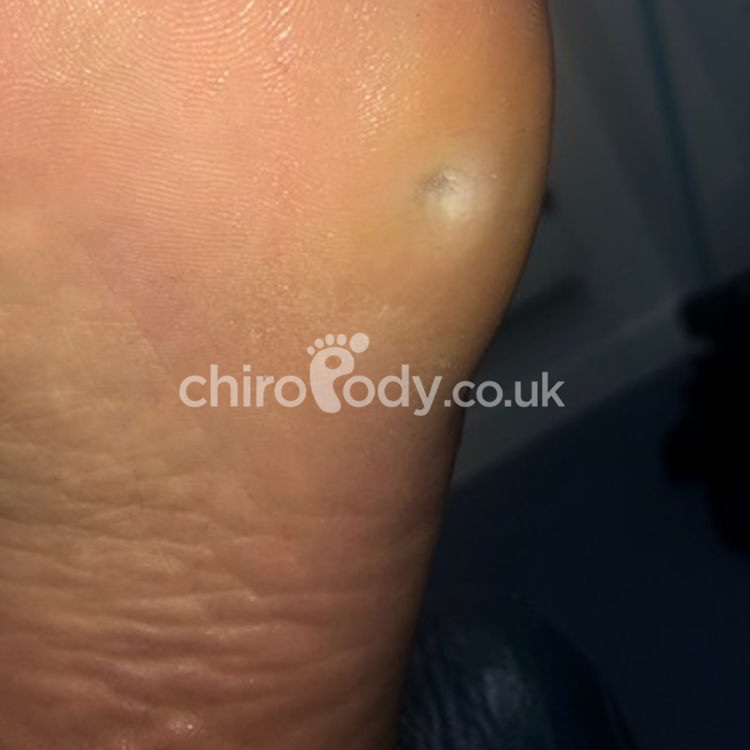Corns
Download our Corn Treatment information pack

Corn
Treatment
Corns can be very painful. If you have a corn it may feel as though you are walking on a pebble. Corns do not just develop beneath the foot; they can also occur in between the toes (a soft corn) or even under the nail. Corns occur as a result of pressure, it is therefore important to address why the extra pressure is occurring in order to prevent a corn from reappearing.
What are corns?
A corn is an area of localised thickening of the skin. This thickening is referred to as 'hyperkeratosis' and occurs as a result of excessive compressive pressure and shearing forces, it is body's way of protecting the deeper structures from damage. Pain occurs due to the pressure placed on underlying nerves.
A popular misconception is that corns have roots; this is false, a corn does not have a root. Instead it has what we call a nucleus. The nucleus is a conical shaped area of hard keratin which has formed in response to pressure and/or friction.
What causes corns?
A corn develops as a result of excessive pressure. This may be due to:- Ill-fitting/tight footwear
- Poor biomechanics
- Doing lots of activity on your feet ' this can put extra pressure on the feet. It is therefore important to wear the correct footwear for the activity
Certain medical conditions can also increase the chances of a corn developing, for example, rheumatoid arthritis. This is because the foot can change shape, leading to high pressure areas.
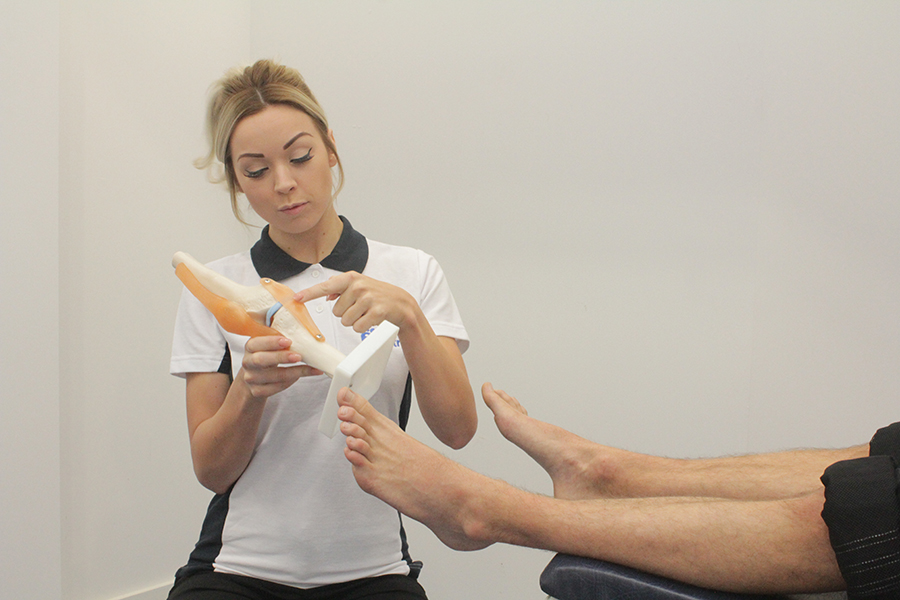
What are the signs and symptoms of corns?
This depends on the type of corn you have. Typical signs are the following:- Feeling as though you are walking on a pebble
- Burning /smarting sensation
- A soft corn is soft, moist and rubbery
- Pain that may stop you from doing certain activities
- A small area of hard skin. It may feel like a 'lump'
Types of corns
There are a variety of different corns:- Helome Molle (soft corn): These are found in between the toes, most commonly between the 4th and 5th toe. As the name suggests these are soft and moist, they are associated with sweaty feet.
- Helloma Durum (hard corn): These are the most common type of corn. They are found on weight bearing areas, such as underneath the metatarsal heads. In addition they are found on the top of the toes and on the side of the big/little toe as a result of pressure from footwear.
- Hellome mille (seed corn): These are associated with very dry feet and friction and are usually observed on non-weightbearing areas. They are the most easy corn to treat due to their superficial nature as they do not imbed deep into the skin.
- Vascular corn: This is a helloma durum (hard corn) which has a blood supply. It will have dermal potrusions and may bleed when the podiatrist removes it.
- Neuro-vascular corn: This is a helloma durum with a blood and nerve supply. This type of corn can be particularly painful and may require local anaesthetic to remove it successfully.
How are corns diagnosed?
Your podiatrist will be able to tell you if you have a corn or not, the type, and the treatment options available to you. Diagnosis will be based on an examination of the affected area.
Benefits of podiatry for corns
If you have corns podiatry will benefit you. At Chiropody.co.uk we can offer the following benefits following corn treatment:- Immediate relief from pain
- Painless treatment
- Improved foot function
- Pressure redistribution
What would podiatry for corns involve?
Your podiatrist will begin by taking a medical and social history. They will then remove the corn using a scalpel. They will then provide footwear advice and if necessary refer you for a biomechanical assessment. Your treatment will be individual to you.
Treatment for corns typically involves removal with a scalpel. This is called 'enucleation'. Enucleation is usually painless, however, it can sometimes be a little uncomfortable. If you find it to uncomfortable your podiatrist can take out as much, or as little as you would like. They will only do what you are comfortable with. Enucleation of the corn will provide only temporary relief, it is therefore important to address the underlying cause. Treatment for corns may also include:
It is important to note that diabetics should NOT under any circumstances use corn plasters or any other type of chemical treatment for the removal of corns.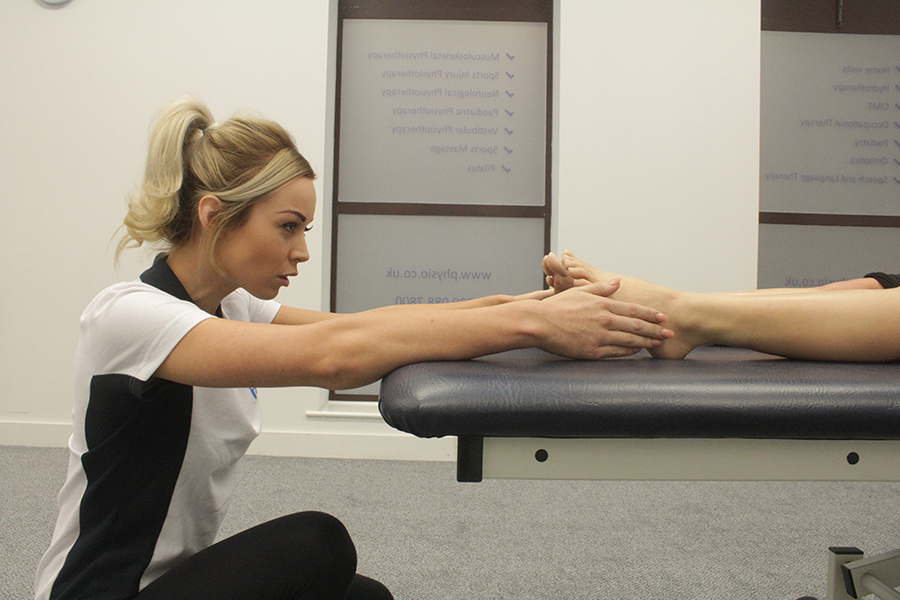
Summary
A corn is a localised area of hyperkeratosis caused by excessive compressive and shearing forces. They can be very painful, and as a result, can affect the way you walk. There are a number of different types of corns: Hard, soft, seed, vascular and neurovascular. Your podiatrist can remove the corn using a scalpel which should be painless. It is important to address the underlying cause to prevent the corn returning, this may be by changing your footwear or wearing an orthotic (shoe insert) to correct any biomechanical issues that may be contributing to the corns .
Take a look at a previous customer.
The following images are before and after photographs of a customer who has been through treatment.
To arrange an assessment with one our podiatrists please email office@chiropody.co.uk or call 0330 088 4222
Save 5% by booking an appointment online.



We work with:

Individuals

Organisations

Health professionals
Get in Touch!
0330 088 4222
If you would like to speak to one of our specialists then please complete this form.
We are open 7 days a week
